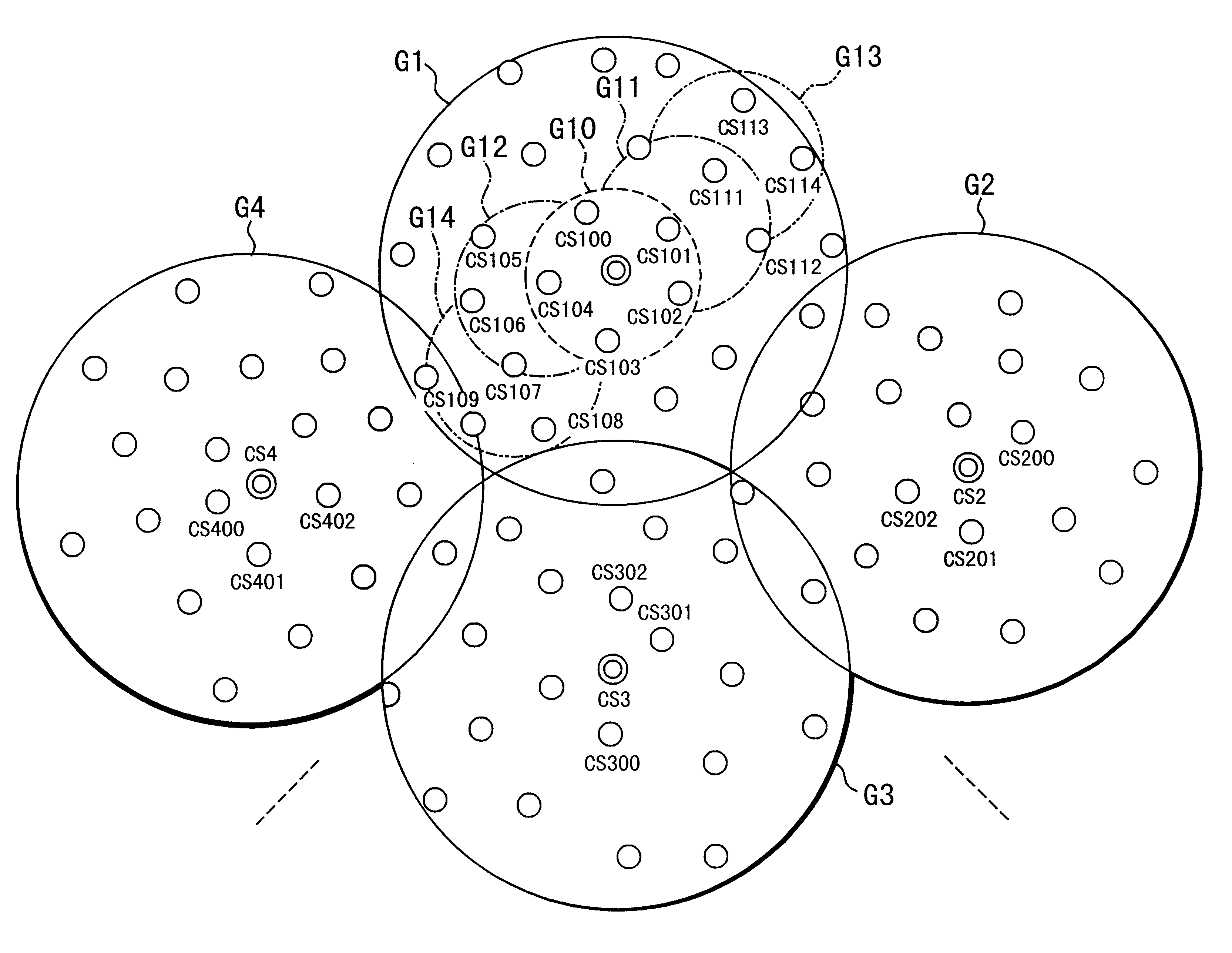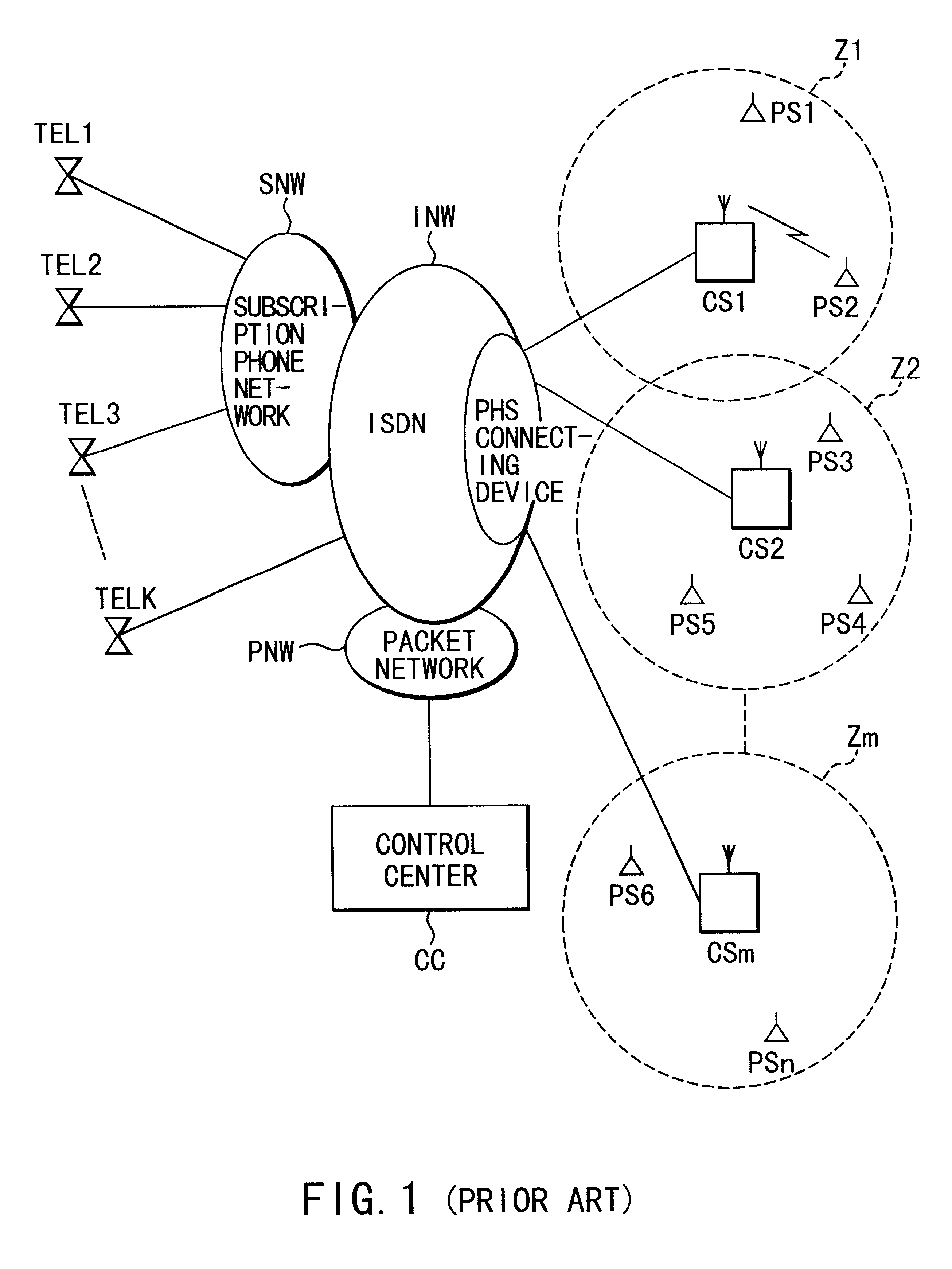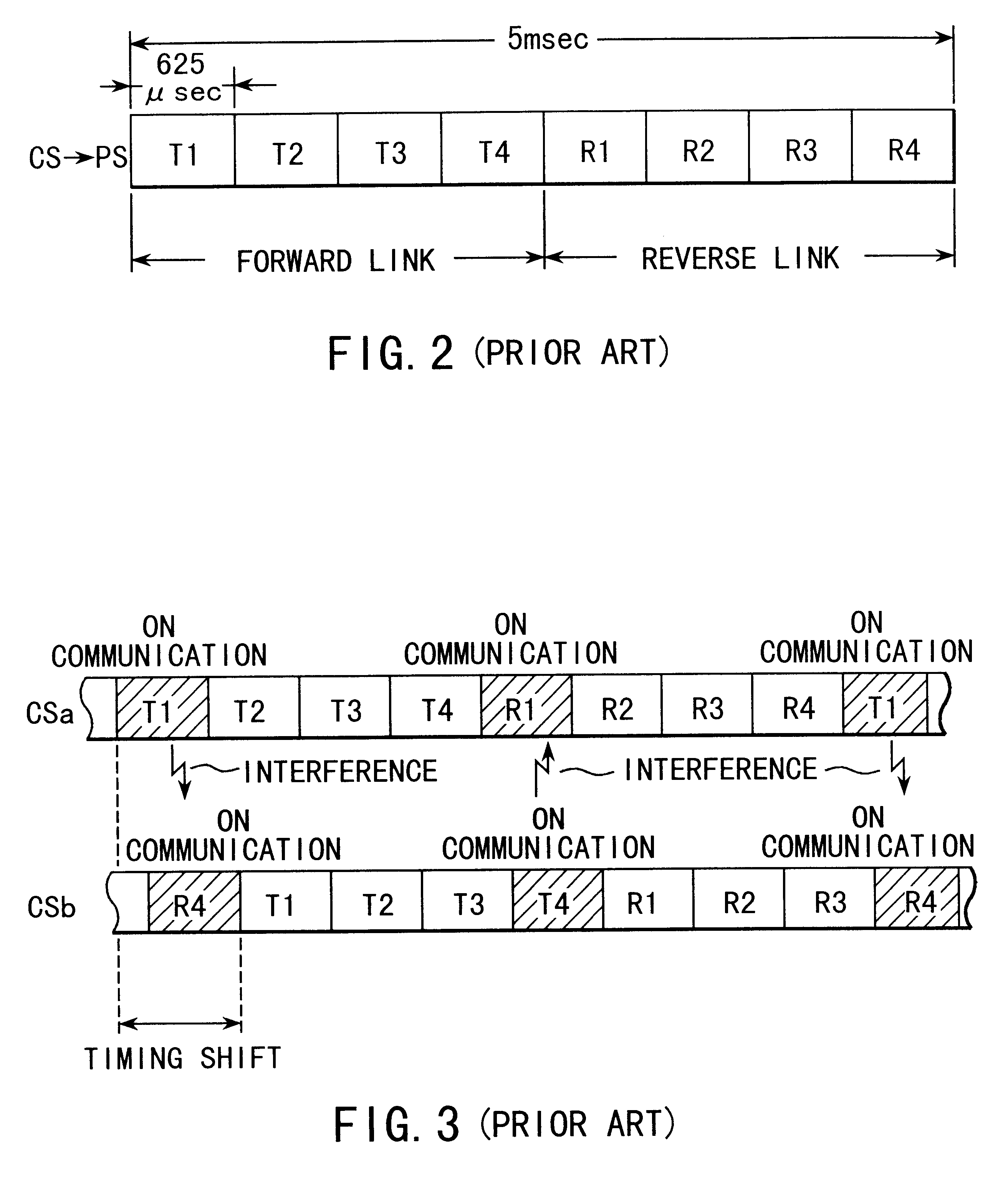Frame synchronization system between base stations of mobile radio communication system and base station device employing this system
a mobile radio communication system and frame synchronization technology, applied in the field of frame synchronization system, can solve problems such as interference, inability to avoid interference, and inability to use communication channels that were originally usabl
- Summary
- Abstract
- Description
- Claims
- Application Information
AI Technical Summary
Benefits of technology
Problems solved by technology
Method used
Image
Examples
Embodiment Construction
An embodiment of the present invention will next be explained with reference to the drawings.
FIG. 4 is a layout plan of base stations in a mobile communication system in accordance with one embodiment of the present invention.
In FIG. 4, a service area of this system is divided into small service areas G1, G2, . . . One master station CS1, CS2, . . . , and many slave base stations CS100, CS200, . . . , are arranged in each of these small service areas G1, G2 . . . Arranging positions of the master base stations CS1, CS2, . . . , are set to be approximately located in central portions of the small service areas G1, G2, . . .
The above master base stations CS1, CS2, . . . , and the respective slave base stations CS100, CS200, . . . , form wireless zones each having a radius from about 100 to about 500 m. Wireless transmission using a TDMA-TDD system is performed between these base stations and unillustrated mobile stations existing within these wireless zones. Each of the above base sta...
PUM
 Login to View More
Login to View More Abstract
Description
Claims
Application Information
 Login to View More
Login to View More - R&D
- Intellectual Property
- Life Sciences
- Materials
- Tech Scout
- Unparalleled Data Quality
- Higher Quality Content
- 60% Fewer Hallucinations
Browse by: Latest US Patents, China's latest patents, Technical Efficacy Thesaurus, Application Domain, Technology Topic, Popular Technical Reports.
© 2025 PatSnap. All rights reserved.Legal|Privacy policy|Modern Slavery Act Transparency Statement|Sitemap|About US| Contact US: help@patsnap.com



